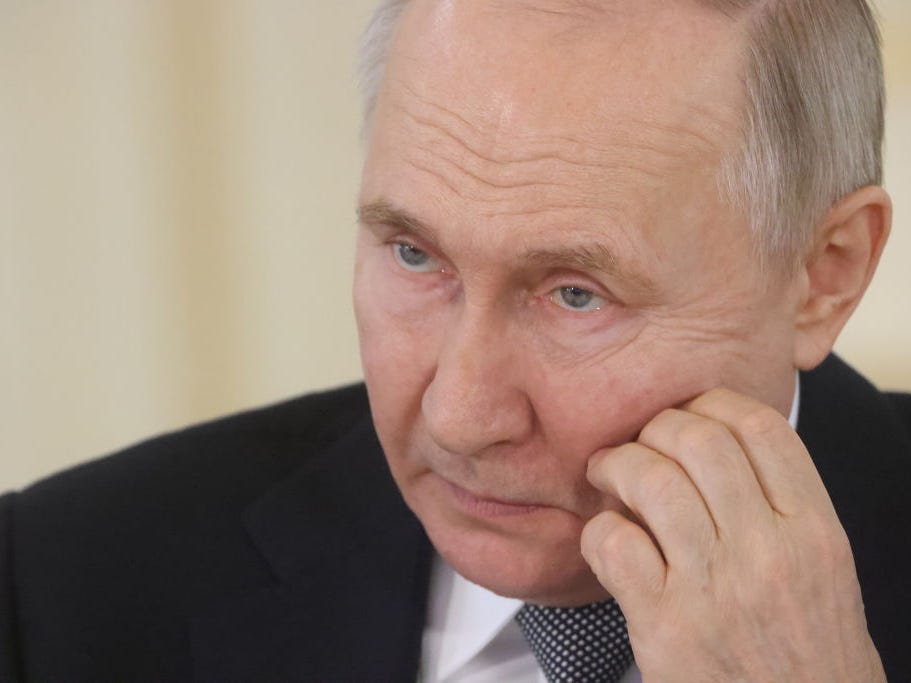-
Russia’s war against Ukraine has improved conditions for some poor Russians.
-
War-related activities are driving economic resilience, with GDP growth of 3.6% last year.
-
High interest rates and military focus pose risks to Russia’s economic stability.
Russia’s war against Ukraine has left some poor Russians better off, complicating the calculation of how to end this war.
The sanctions-hit Russian economy is proving resilient even after two years of war, with growth of 3.6%. GDP growth last year
Reports from Russia suggest there is growth mainly driven by wartime activities that generate demand for military goods and services, subsidies that stabilize the economy, and sharp policymaking.
“The Russian economy is gradually being militarized,” researchers at the London-based company wrote Think tank Center for Economic Policy Research in May.
“Some sectors and some regions have been winners in Russia’s new war-oriented economy,” they said.
According to the CEPR researchers, production in war-related industries increased by 60% between autumn 2022 and spring 2024. Industrial production of other sectors remained flat over the same period.
Some of Russia’s poorest regions are benefiting from a redistribution of wealth.
“The war provided many people with upward social mobility unavailable in the previous decades of Russia’s reintegration into the global economy,” the CEPR researchers wrote, referring to the fall of the Soviet Union.
Higher wages than even the oil industry
Households in regions where military recruitment has increased have recorded higher deposits since the start of the war, a separate report says Report from the Bank of Finland published in January. The study found that bank deposits grew by about 30% between August 2022 and August 2023 in poor regions where more men participated in the war – surpassing the 20% growth in other regions.
Increased prosperity could make it difficult for the Kremlin to scale back the war in Ukraine because that would also mean a slowdown in military production, an economist said. Radio Free Europe on Tuesday.
Soldiers from poor regions now on the front lines could face a drop in their income because there are few opportunities when they return home, economist Andrei Yakovlev of the Davis Center for Russian and Eurasian Studies at Harvard University told me. to the media.
A higher wage entails risks.
The British Ministry of Defense estimated this in May probably half a million Russian soldiers had been killed or wounded since the Russian invasion of Ukraine in February 2022.
This, next to a brain drain, contributes to manpower shortages in Russia – giving rise to the army to pay more than the lucrative oil and gas industry.
The Russian army offers contract soldiers to a national sign-up bonus from 195,000 rubles, or about $2,200, while salaries start at 210,000 rubles per month. By comparison, workers in Russia’s relatively well-paid oil and gas sector took home about 125,200 rubles in nominal monthly salary in the first two months of the year. Bloomberg’s calculations.
The Russian economic report shows that the country is increasingly entangled in a web of challenges caused by the war and its consequences for the economy.
While Russian central banker Elvira Nabiullina and her team have managed to stabilize the economy so far, but cracks are emerging.
Earlier this month, Herman Gref, the CEO of Sberbank – Russia’s largest bank by asset value, said economy of the country is “absolutely and greatly overheated”. Nabiullina himself warned in December that the country’s economy was in decline risk of overheating.
Last week, Igor Sechin, the CEO of Russian oil giant Rosneft complained that high interest rates – introduced to curb inflation – make financing difficult for businesses.
Read the original article Business insider

